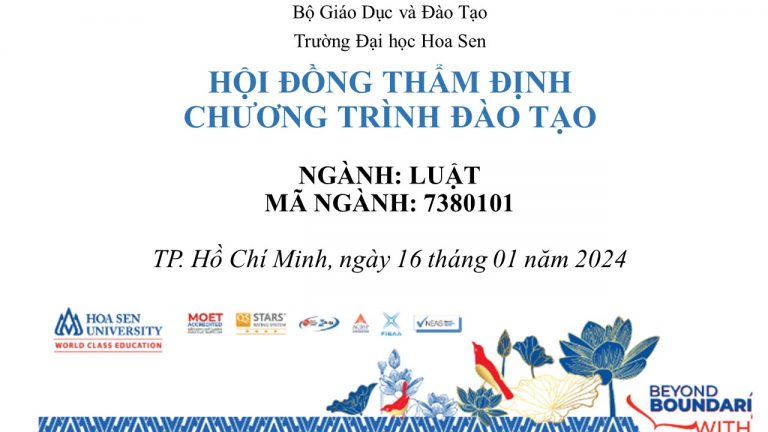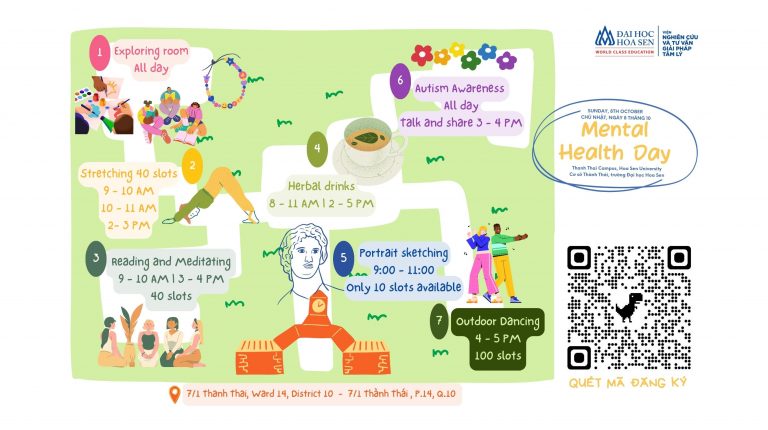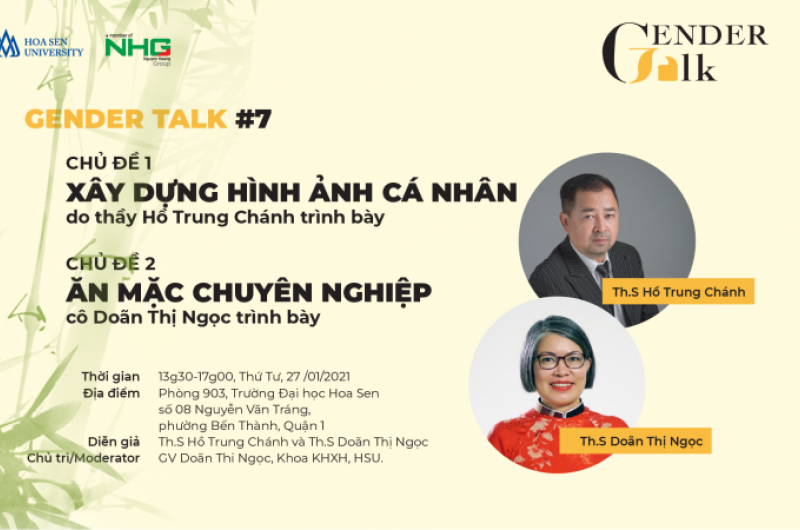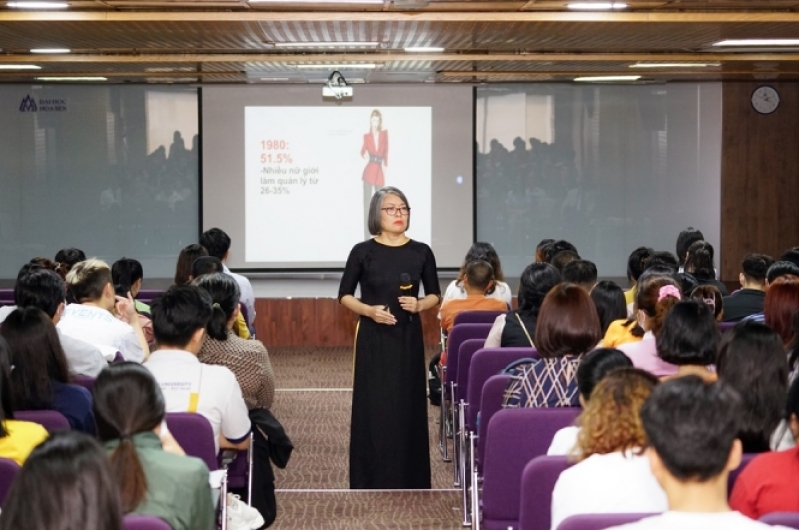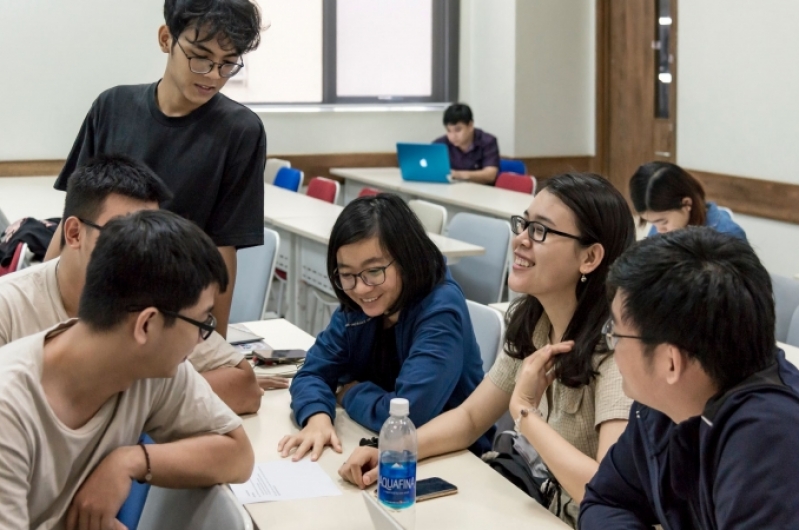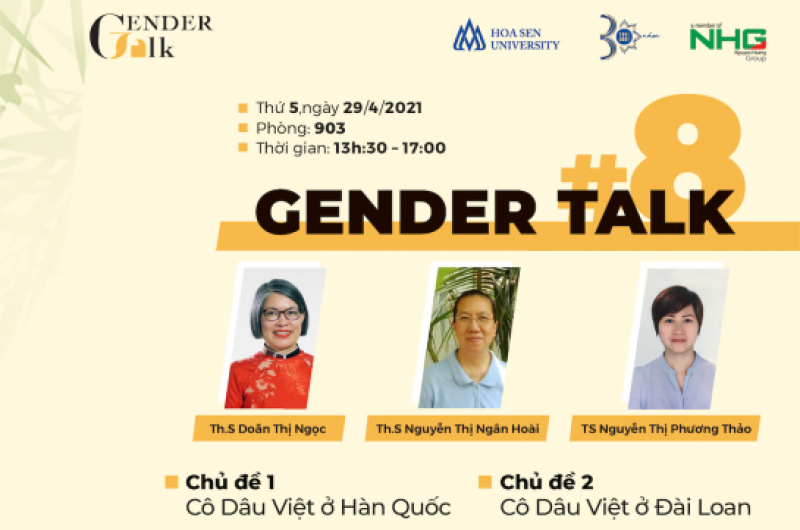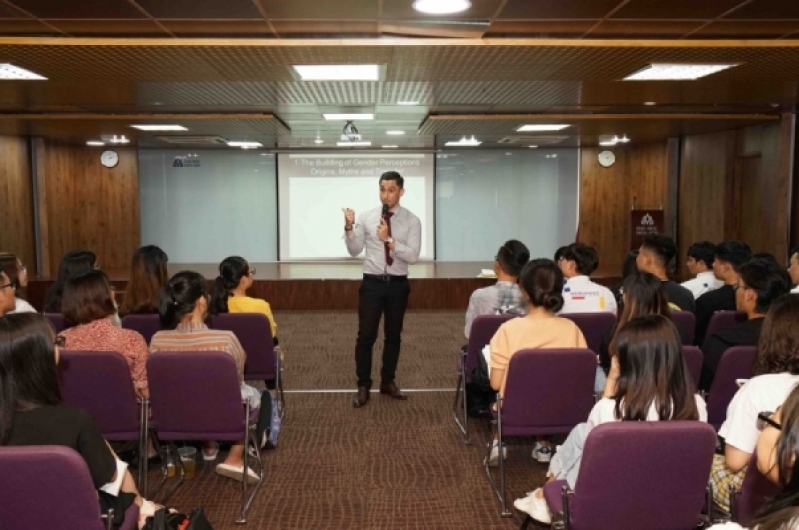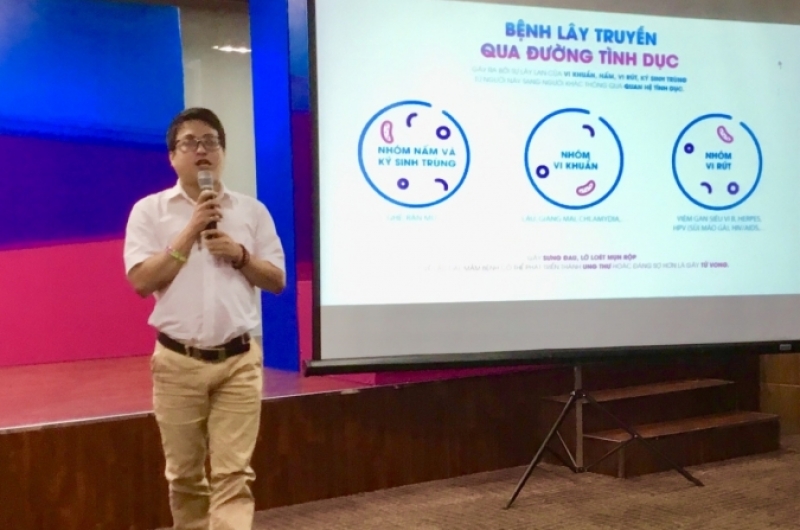Concepts of life and behavior of Confucian scholars during the Nguyen Dynasty (1820-1884)
June 12, 2022
MSc Bui Nguyen Han
Department of Philosophy, Faculty of Social Sciences
During the Nguyen Dynasty, Confucianism was considered an ideological pillar. Therefore, Confucianism has a strong influence on political activities, ideology, religion, and concepts of moral values, and to some extent, it has influence and influence on the spiritual life god – the view of life of scholars, mandarins and the people.
Influenced by Confucianism, Chinese academics and mandarins and the Confucian cultural values of previous feudal dynasties in Vietnam, mandarins and scholars of the Nguyen Dynasty lived in the land of Thuan. Turned out or was sent by the royal court to other places to exercise authority and duties; Many of these people view Confucianism as a moral doctrine to be developed in human life, also to serve the path of fame and career in the future, but not many of them promote it. into a mainstream academic doctrine like in China. ,
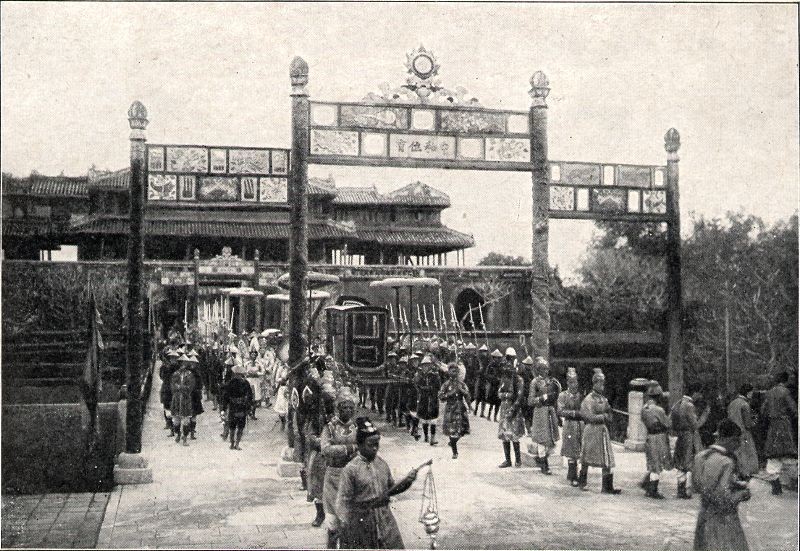
Kings like Gia Long, Minh Mang, Thieu Tri, and Tu Duc all prioritized civil mandarins over martial mandarins because they understood that if they wanted to rule, and maintain order and stability for a peaceful and prosperous society, they could only rule. Using mandarins with backgrounds in Confucianism, martial officials were only used in times of war, or power struggles – in some cases using force.
During the flourishing period of Confucianism during the Nguyen Dynasty (1802-1858), the culture of the Nguyen Dynasty in general and the Confucian culture of the Nguyen Dynasty in particular converged many favorable factors for my existence and development me. In particular, Confucian culture has contributed to the formation of a strong institution, cultural and ideological activities, economic and trade activities, and school and examination regimes are all based on cultural foundations. Confucianism follows the Trinh – Zhou model.
But since 1858, when the French and Spanish coalition opened fire to invade Vietnam. From here, Vietnamese society shook in all aspects. In terms of perception, many people blame Confucian culture for hindering development, making the country increasingly weak and unable to cope with the French colonialists. The Mandarin class and the Confucian scholars were deeply disturbed and divided, leading to divisions in the ranks towards conservative, progressive, moderate, and even reformist tendencies.

It is the reality of life and the rapidly changing context of a society that has caused Confucian scholars to form their concepts of life and behavior in many different ways, even though they all come from “doors and courtyards”. submit”. Professor Trinh Van Thao commented, “The principle of “self-cultivation” to practice “peacefulness” in social relationships means being calm, calm, aloof, and overcoming all unreasonable ambitions.” first
Typical figures of this period include Nguyen Cong Tru (1778-1858), a native of Uy Vien village, now Xuan Giang commune, Nghi Xuan district, Ha Tinh province. He believed that “as a man standing in heaven and earth, he must have nothing to do with mountains and rivers”. Nguyen Cong Tru came from an academic background and entered the official world. Although he was a literary mandarin, he had special talents in the fields of military, economics, and literature. His life is a heroic book with ups and downs in his career. In every field that he undertakes, he is the model of a person who acts and commits himself anytime, anywhere, unlike some mandarins – coming from Confucianism with the concept of “committing at any time”. Having gone through many ups and downs, Nguyen Cong Tru deeply understood the current situation: “If you graduate from school, you will be humiliated, if you enter the world, whoever cries first will laugh.” Many times when he looked back bitterly at his life, he was a man full of courage: “In your next life, please don’t be a human being – be a pine tree standing in the sky and ringing.”
Nguyen Tri Phuong (1800-1873), in 1858 the French-Spanish coalition opened fire to invade Vietnam. He was appointed by King Tu Duc as general commander of the army, directly commanding the army to fight back. In 1859, France turned to attack Gia Dinh. In 1860, he was promoted to the position of Gia Dinh lieutenant, military governor, and counselor Pham The Hien to oversee military affairs in the South. In 1862, when the Hue court signed The peace treaty in the year of the dog ceded to France 3 provinces in the Southeast region. He was sent to the North to be president of Hai An military service 2.
After France had a strategy to annex Hanoi, Nguyen Tri Phuong was appointed to guard the Hanoi citadel. In 1873, Cochinchina’s Marshal Francis Garnier sent troops to Hanoi under the pretext of helping negotiate the dispute between merchant Jean Depuis and the Nguyen government in Tonkin. On the night of November 19 and 20, 1873, Garnier sent troops to attack Hanoi citadel. The French army with strong firepower quickly took the initiative, Nguyen Tri Phuong was seriously injured, he was treated by French soldiers to bribe him later, but he bluntly refused and said “Now if we just Trying hard to survive, how can you be willing to die for a righteous cause?” 3 After that, he went on a hunger strike for nearly a month and died on December 20, 1873.
Hoang Dieu (1829-1882) came from a family with Confucian traditions in Xuan Dai village, Dien Phuoc district, Quang Nam province (now Dien Ban district, Quang Nam province).
In 1882, Vietnam used the excuse of not respecting the 1873 treaty but instead went to deal with China, tolerating the black flag army (a branch of the Thai Binh Thien Quoc) to obstruct the traffic on the Red River of the French, Colonel. Henri Rivière of the French Navy stationed warships and 400 troops at the Water Station (on the North bank of the Red River, 5 km from Hanoi citadel) to threaten Hanoi. Hoang Dieu ordered a curfew in Hanoi announced that surrounding provinces were ready for battle, and requested reinforcements from the Hue court.
However, the defeatist faction of the Hue court persuaded King Tu Duc to accept the loss of Tonkin to keep his throne safe, which made King Tu Duc decide to issue a decree reprimanding Hoang Dieu for threatening soldiers. The enemy and conquered the wrong way, but Hoang Dieu was determined to live and die with Hanoi.
At dawn on April 25, 1882, Henri Rivière sent warships close to Hanoi and issued an ultimatum. Hoang Dieu received the ultimatum but did not need to wait for the deadline to respond. At 8:15, Rivière with 4 warships fired at the citadel to support 450 troops, and a small number of soldiers landed to take over Hanoi citadel. In a desperate situation, Hoang Dieu continued to calmly lead his soldiers to fight against the French army even though his forces became weaker and weaker and could no longer hold the citadel. In the end, Hoang Dieu ordered the generals to disperse to avoid casualties. Hoang Dieu alone went into the Royal Palace, drafted a will, then went to the martial temple, used a scarf to hang himself, and died at the age of 54. On the will, he bit his finger drew blood, and wrote a will to apologize to King Tu Duc: “The city is lost and cannot be saved. It’s a shame for the people of the North at the time of their birth. God of death has no care, please follow Nguyen Tri Phuong to the ground. “The king is miles away, tears of blood flow” 4.
Phan Thanh Gian (1796-1867) came from a poor family. His ancestor was Phan Thanh Tap, whose name was Nguu Cu, who lived during the Ming Dynasty. After the Ming Dynasty was destroyed by the Manchu Qing Dynasty, Phan Thanh Tap migrated to Hoai Nhon district, Binh Dinh Province, Vietnam.
In 1858, the French-Spanish coalition landed and attacked at Da Nang estuary and then in turn captured the eastern province of Cochinchina. Phan Thanh Gian as chief envoy and Lam Duy Hiep as deputy envoy were sent to negotiate with the French. Then, representing the court of King Tu Duc, he signed a treaty of peace and friendship, the Nham Tuat Peace Treaty on June 5, 1862, in Saigon. On June 20, 1867, France invaded Vinh Long. Faced with France’s overwhelming military power, knowing that it could not be held, to avoid useless bloodshed, Phan Thanh Gian decided to hand over the citadel without resistance. with the requirement that the French must ensure the safety of the people. After his death, he went on a hunger strike for 17 days and then drank poison and committed suicide on August 4, 1867, at the age of 72.
By sketching the life portraits of a few Confucian scholars of the Nguyen Dynasty, we can see that they always lived and acted, behaved in life, and behaved according to the concept of “loyalty, patriotism”. Committed anytime, anywhere, different from the concept of “committed at any time, free at any time” of the Confucian scholars who later collaborated with the French. But in any situation, they put “patriotism” first, putting national interests first. There were times when the court came to a compromise with the French to accept the protection regime imposed by the French, and the mandarins and scholars stood up to stand against the people’s uprising.

Confucianism transmitted from China to Vietnam has had a certain “refraction” precisely here. In China, “loyalty is loyalty to the king”, and “loyalty to the king”, in Vietnam “in addition to loyalty to the army, it is also understood in a broader sense to be loyal to the country and society” because the country of China is so large that the king must rule. managed through many intermediaries and people loyal to their clan that we can see in history books, especially the Sima Qian historical records.
Being “loyal to the army and patriotic” is close to the lives of the majority of farmers, most of whom come from rural areas – in an agricultural society – for scholars even though they have entered official positions. school but still maintain relationships and ties in many aspects, not separate like the aristocracy in the West.
Therefore, when discussing this issue, Professor Trinh Van Thao summarized “The social space or “cultural space” (espace social) in Vietnam has imprisoned the ranks of Confucian scholars in a “monologue”. between the minority of eunuchs and mandarins and the majority of Confucianists who were “disappointed” because of the failure of the exam according to the principle of “advancing as an official, retreating as a teacher”. The illusion of social mobility, the hope of promotion through examinations, the precarious state of mandarins, and the ups and downs of the dynasty’s fate explain the ambivalent nature of our Confucian scholars: they are both tools of domination. The monarchy also plays the role of spokesperson for peasant public opinion, connecting the court and the village” 5.
Note
[1] Trinh Van Thao (2014) Vietnamese Confucian society-Under the perspective of historical sociology, Knowledge Publishing House p. 71
[2] https://en.wikipedia.org/wiki/Nguy%E1%BB%85n_Tri_Ph%C6%B0%C6%A1ng
[3] https://baoninhthuan.com.vn/news/22017p0c72/nguyen-tri-phuongvi-tong-doc-tuan-tiet-vi-ha-noi.htm
[4] Pham Van Son (1960) Complete History of Vietnam, Tu Book History Publishing House, page 658
[5] Trinh Van Thao (2014) ibid., p. 100

